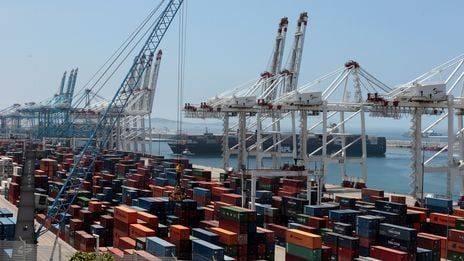Landlocked Burkina Faso, Mali, and Niger Pursue Sea Access through Morocco
In a significant geopolitical and economic transformation, the landlocked West African nations of Burkina Faso, Mali, and Niger are pursuing sea access through Morocco. The move is a strategic reorientation from traditional trade routes that rely on proximate coastal states, particularly in the face of regional tensions and changing alliances.
Strategic Realignment in the Sahel
Burkina Faso, Mali, and Niger — all Sahel bloc members — have been coping with an interconnected blend of domestic instability, terrorism, economic hardship, and strained relationships with classic Western allies. In the past two years, all three have been overthrown by military juntas that have turned away from France and other former colonial powers.
As such, the three countries formed the Alliance of Sahel States (AES), signaling a unified response to security, development, and sovereignty. Their latest step, seeking sea access via Morocco, is part of their broader goal to increase independence from West African coastal neighbors considered closer to Western interests.
Why Morocco?
Morocco presents a very attractive option on several bases. It is politically stable and has a widespread system of contemporary infrastructure, boasting world-class ports such as Tanger Med and Casablanca. Tanger Med, in particular, is one of the biggest ports in Africa and a key logistics hub linking Africa, Europe, and the Americas.
Additionally, Morocco has situated itself as Africa's gateway and has invested in trans-Saharan trade infrastructure and maintained friendly diplomatic ties across the continent. Through establishing transit corridors to Morocco, the AES countries could significantly reduce their dependence on ports in countries like Togo, Ghana, Benin, and Côte d'Ivoire, across which political relations have become increasingly strained.
Infrastructure and Investment Barriers
The aspiration to link up with Moroccan ports, however, is not problem-free. The AES countries would have to develop or upgrade transnational road and rail networks, which stretch thousands of kilometers over vast desert terrain. Morocco, while probably politically and economically inclined to promote the project, would insist upon concrete security guarantees and trade benefits in return.
Substantial investment will be required to render such a corridor feasible. Funding may come from non-traditional sources like China, Russia, or Gulf states, all of which have expressed interest in Sahelian development as part of their overall geopolitical agendas.
Implications for West Africa and Beyond
This shift has sweeping implications for the Economic Community of West African States (ECOWAS), which the AES countries have announced their withdrawal from. Their growing economic and political distance can lead to a re-dealing of regional trade and diplomatic blocs.
Further, the Morocco pass could have a spillover effect on the other landlocked countries in the region, such as Chad or even the Central African Republic, who would similarly consider alternative sea routes as part of national sovereignty and efficiency goals.
Morocco's Diplomatic Opportunity
For Morocco, the step has a great diplomatic dividend. As Rabat keeps seeking broader African backing for its Western Sahara claims, intensified economic ties with the AES nations could yield both strategic influence and global backing.
Morocco would benefit economically as well from increased trade and the standing of its ports as leading African hubs. On a continent where infrastructure shortages are still one of the biggest development hindrances, a successful corridor project would advance Morocco's standing as a regional integration leader.
The Burkina Faso, Mali, and Niger initiative seeks to gain sea access through Morocco represents a major strategic realignment capable of reconfiguring West African trade flows. While the path ahead is complex and riddled with logistics and economic challenges, the pursuit is part of a broader trend: African states attempting to remake their futures by forging new alliances and opening new trade routes.
As the project comes to fruition, regional leaders, international investors, and multilateral institutions will be watching closely — all hoping that this ambitious vision will bring true accomplishment to the Sahel and, indeed, beyond.



No comments yet
Be the first to share your thoughts!